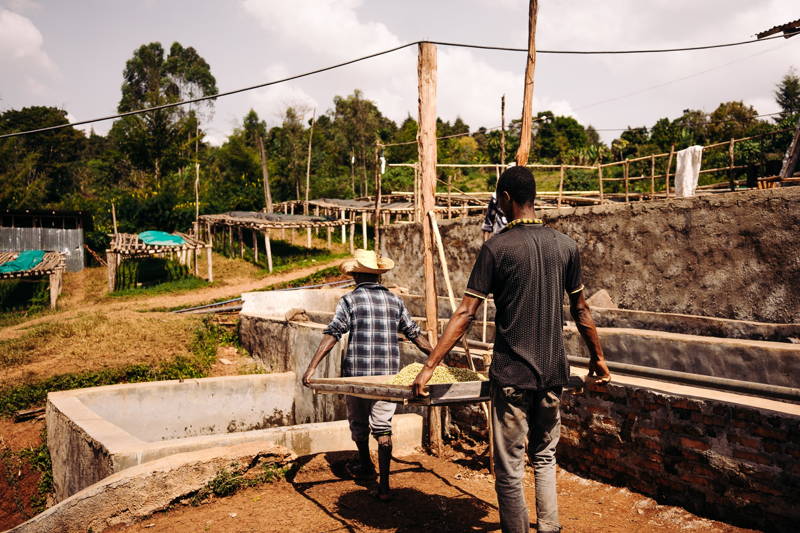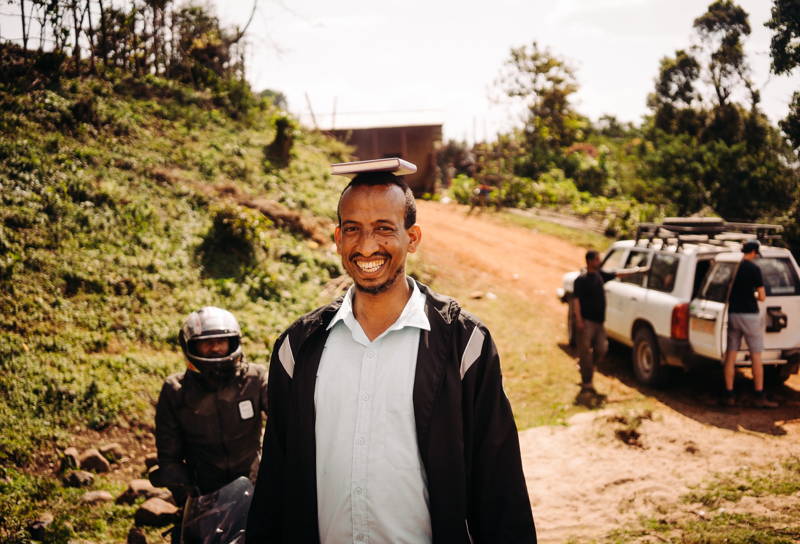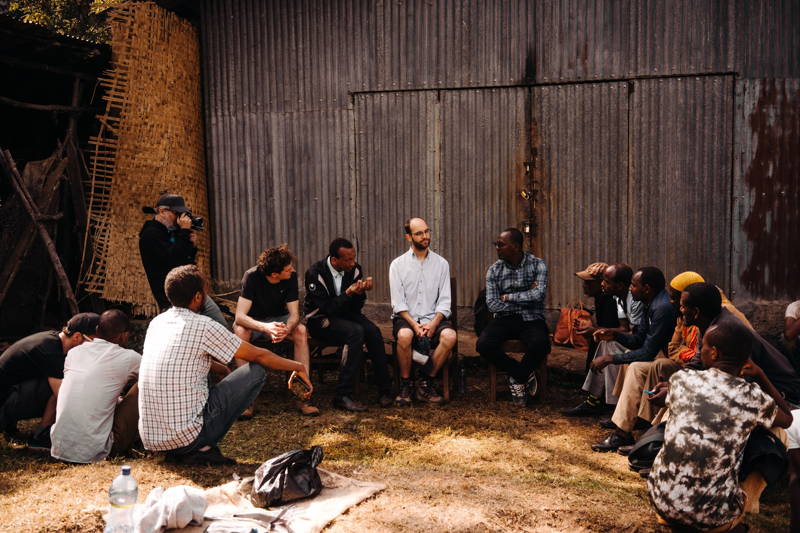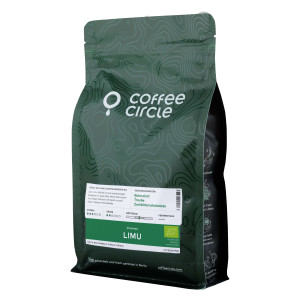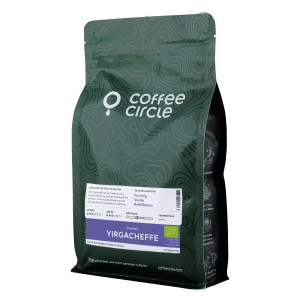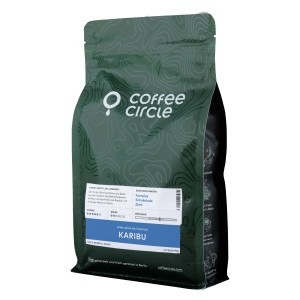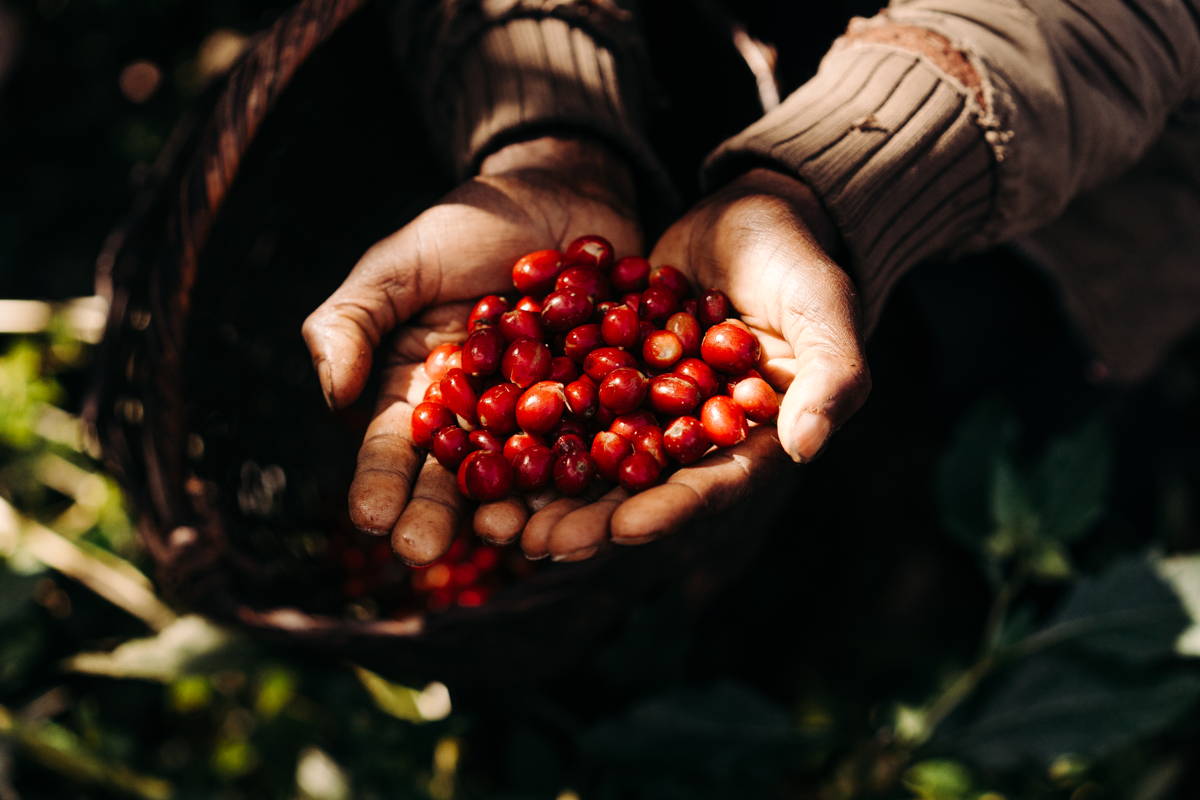
Education and quality training for coffee farmers in Ethiopia
There are different ways to support coffee farmers. In the course of our history and project work, we have learned that quality training is an effective measure because by increasing the quality of the coffee, the cooperatives can demand higher prices and thus increase wages beyond the project period. Thus, we have invested in the education and training of farmers in Ethiopia.
The education and quality training project has grown organically from our multi-component WaSH project, which consists of clean drinking water supply, hygiene training and sanitation construction and renovation. All these aspects are closely interlinked and together contribute significantly to improving the quality of life in rural Ethiopia.
In brief
- Project volume: € 340,000
- Implementation period: 2017-2020 (extension requested)
- Project location: Jimma, Ethiopia
- Cooperatives: 15 cooperatives in the woredas of Seka, Mana, Goma, Gera and Gumay.
- Geo coordinates: 36.81 oE to 36.47 oE; 7.56 oN to 7.91 oN
- Beneficiaries: approx. 10,000 people
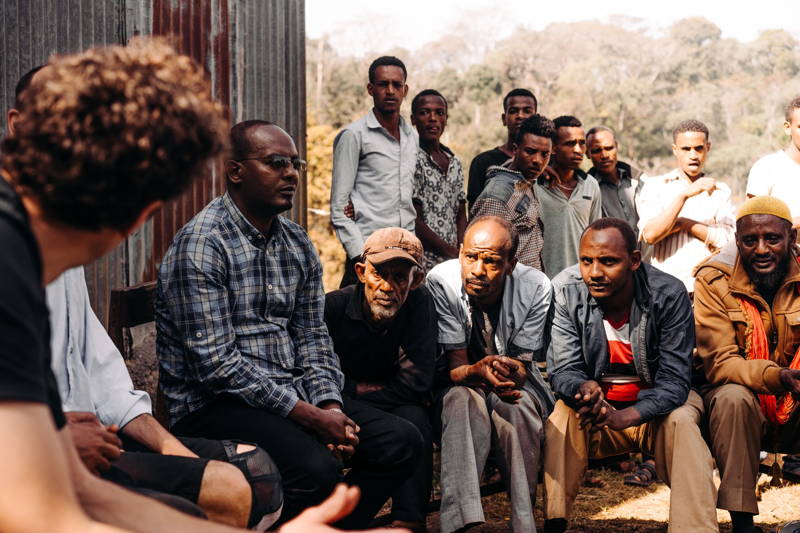
Why was this project so important?
The price of the coffee is determined on the basis of quality. This is evaluated in cuppings by independent experts from the Ethiopian Coffee Exchange. The higher the quality of the coffee, the higher the selling price and, analogously, the higher the income of the farmers. Therefore, we have decided to use your donations of 1 € per kilo of coffee sold to support 10,000 coffee farmers and their families in coffee cultivation and quality improvement.
Previously, they were not able to fully exploit their potential, although the Jimma region in Ethiopia offers the best conditions: Natural conditions such as cultivation altitude, soil quality, and climate favor high coffee quality. The association in coffee cooperatives is common in this region. The coffee farmers use a common central processing station and have better access to the market.
Unfortunately, there was a lack of technological equipment, access to professional advice on coffee cultivation, and exchange for quality improvement among the cooperatives. These difficulties, coupled with the growing threat of global and regional climate change affecting coffee production and all-natural resources in the region, are leading to a deterioration in living conditions and even threatening the livelihoods of the farmers and their families.
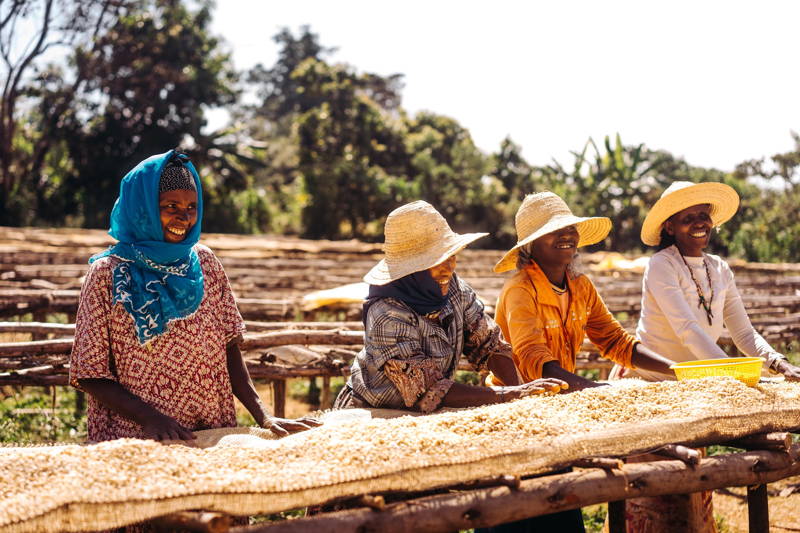
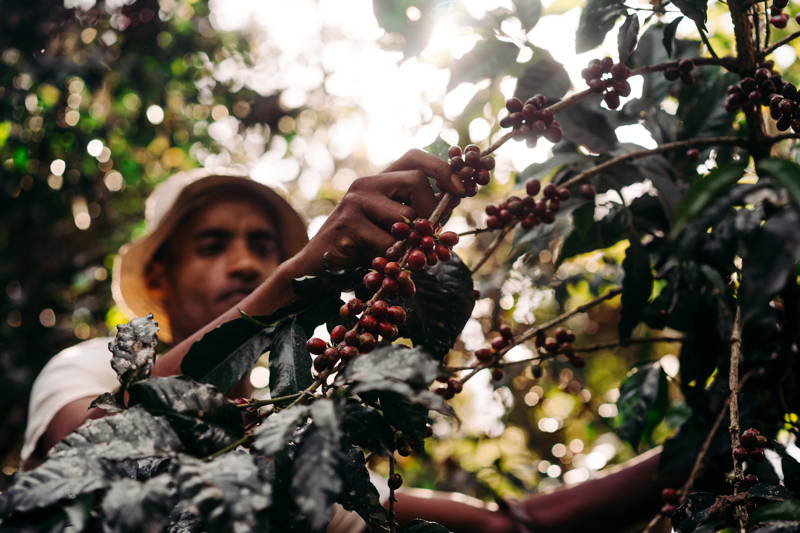
How was this project implemented?
As part of the BMZ project, we organized quality training for nine cooperatives and also set up new washing stations for some of them. With an extra budget, we trained six more cooperatives independently of the BMZ project.
As so often in life, one thing led to another. The education and quality training project grew out of our large-scale WaSH project thanks to the support of Welthungerhilfe as an NGO partner and local representative and funding from the German government. As a „Value Chain Project“ it was part of the BMZ overall concept together with WaSH and Bio-Diversity, made possible by Welthungerhilfe. Our managing director and Coffee Circle co-founder Martin Elwert was closely involved.
Stephan Eicke: Martin, before it gets too confusing: Please briefly explain the various aspects of the BMZ project.
Martin Elwert: In the beginning there was the WaSH project, which we financed and later executed together with Welthungerhilfe. We had invested just under 720,000 euros. Welthungerhilfe then suggested that we apply for funding from the German government, or more precisely from the German Federal Ministry for Economic Cooperation and Development (BMZ). We received this grant and thus had a budget of almost 1.6 million euros. Now we had the chance not only to implement the WaSH project but to supplement it with a Coffee Value Chain and a Biodiversity part. The Value Chain part describes the education and quality training for farmers. It made sense for everyone involved and also convinced the BMZ because the goal for everyone was always to promote food security. To achieve this, all three parts are needed: Education and training, WaSH, and biodiversity. It is a trinity project, so to speak.
So instead of 720,000 euros, you had almost a million euros more thanks to the grant?
That’s right. We were able to add the biodiversity partly because it was important to preserve plant diversity, prevent erosion, and plant trees. The education and quality training of farmers was the third project under the BMZ banner, in addition to biodiversity and the WaSH component, which was split into three further sub-aspects. Welthungerhilfe was the main coordinator. As part of the BMZ project, we organized quality training for nine cooperatives and also set up new washing stations for some of them. With an extra budget, we trained six more cooperatives independently of the BMZ project.
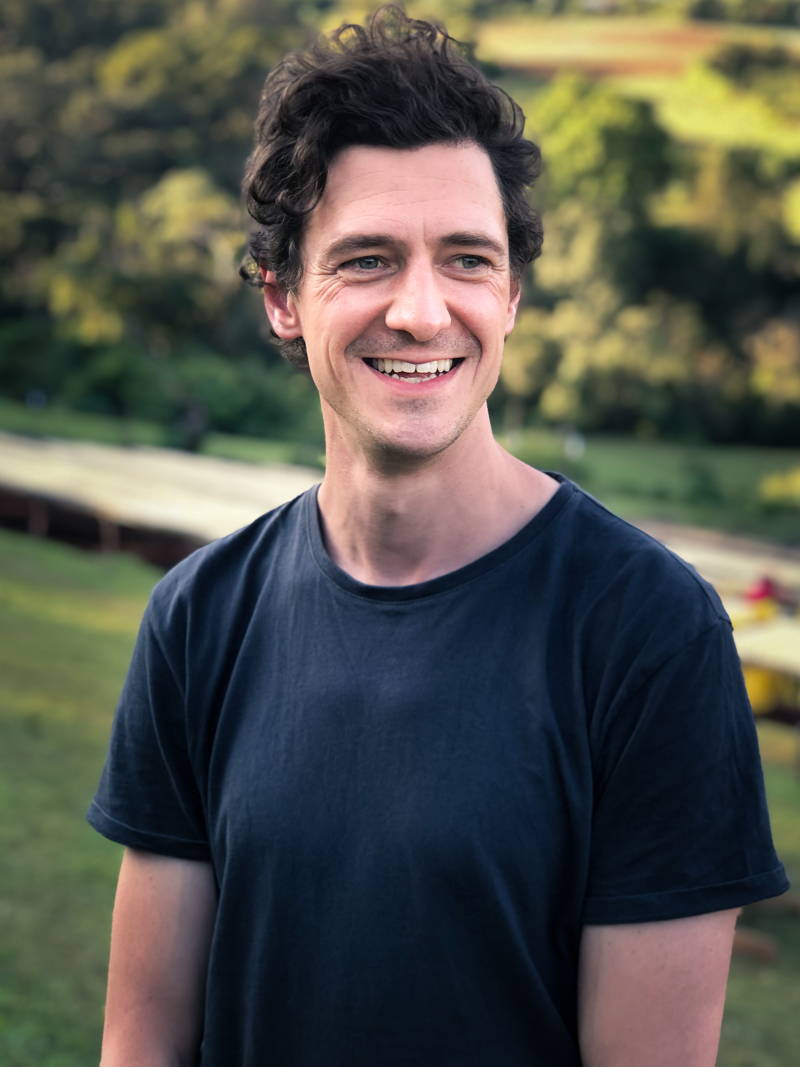
Our coffees from Ethiopia
Washing stations are crucial for cooperatives. If the cooperative owns them, an important part of the value creation takes place within the cooperative and the cooperative can achieve an increase in income. Of course, the careful operation is important. Regular training sessions are held to impart knowledge on the correct separation of the bean from the cherry and on fermentation. In addition, advisors are available to assist the cooperatives on a daily basis during the harvesting season.
The cooperatives also receive support with regard to the preparation of their business plan. This plan must define how much coffee is to be produced and, accordingly, how much credit is required as working capital, how many drying beds must be purchased, and how many employees must be hired for the harvest. Coffee production, of course, depends crucially on the coffee plants themselves. Despite the ideal ecological conditions for cultivation in the region, the coffee plants were hardly productive. Because they were old and not cut back, a coffee plant produced an average of only 0.5 to 1 kg of green coffee. (A healthy coffee plant should produce at least 2 kg of green coffee.) On the one hand, the farmers received training on how to prune their plants, and on the other hand, demonstration fields showed how to replace old plants with new young plants.
In cooperation with our local partner CoQua (= Coffee Quality), we have set up a team in Ethiopia to implement these measures directly with the cooperatives. It consists of local coffee experts and agronomists who train and supervise the coffee farmers. Each cooperative has been assigned an „Assistant Quality Adviser“ who lives in the farmer’s village and can thus provide close support and training to the cooperatives throughout the year.
What has changed?
In February 2018, the first harvest after the start of our project was harvested. Martin Elwert and our roaster Hannes Fendrich were on site to get an impression of the first steps and indeed first improvements could already be noticed. Through the training and washing stations, some cooperatives were already able to noticeably improve the quality of their coffee in 2018. We were so enthusiastic about the Kenissa and Geta Bore coffees that we entered into a partnership with the cooperatives and added the varieties to our store!
This was made possible in part by the new wetmills built for four cooperatives: Gudina Geta Bore (with 231 members), Burka Bore (260 members), Bila Kumo (400 members), and Kenissa (290 members). Quality training and education were conducted for Gorentu Anode (1186 members), Ilketunjo (850 members), Wokito Madallu (970 members), and Doyo (1,075 members). Additional training for coffee improvement was conducted for Dalecho (1,327 members, Kaso Dabo (310 members), Qota (267 members), Sedi Loya (814 members), and Kedamay. For the construction of the drying beds, 50 rolls of wire netting and 50 weaving nets were purchased and distributed to eight cooperatives in three districts.
We also opened two nurseries for sustainable coffee cultivation in Mana (Doyo Toli) and Gomma (Homa Funtule) districts. Storage sheds have been built for nurseries where, in addition to coffee plants, numerous tree species are grown for use in fields for agricultural purposes, reforestation, or shade. Several 150,000 seedlings have been successfully raised and distributed to regional farmers.
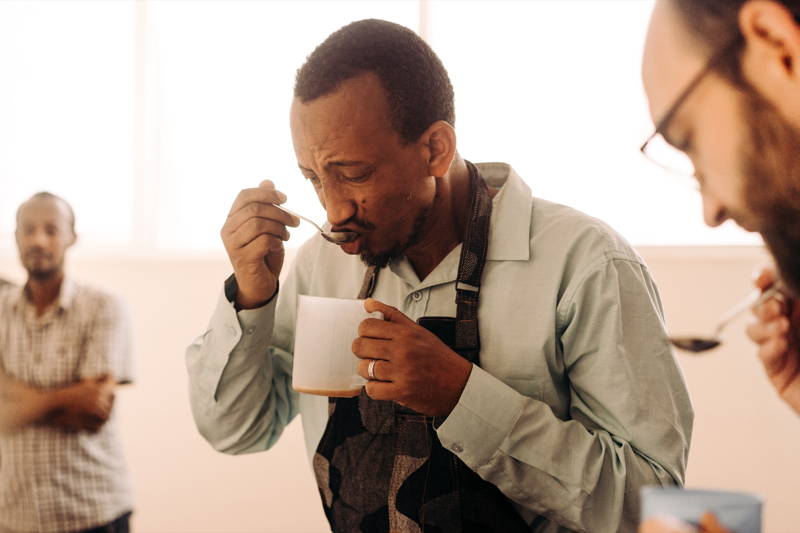
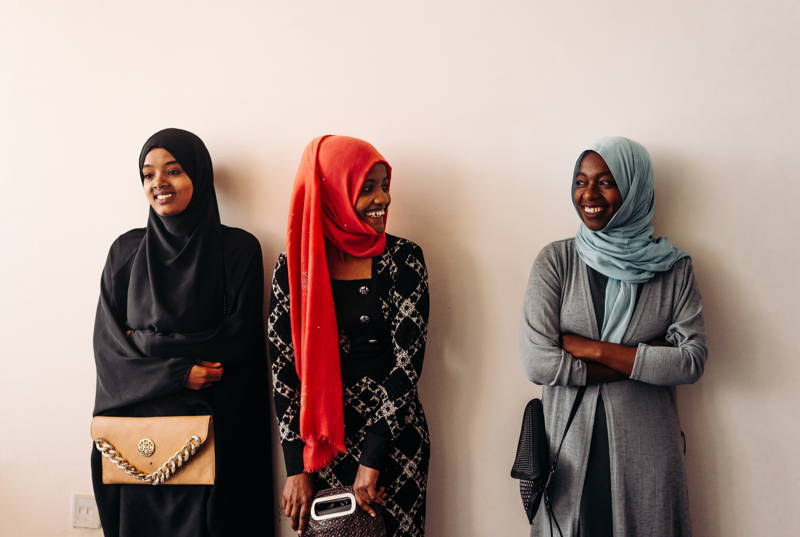
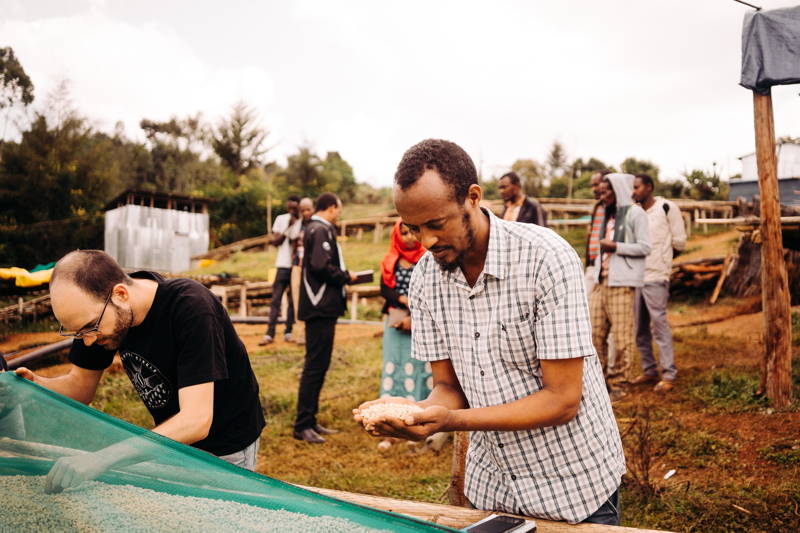
In addition to training to improve coffee quality through better processing, farmers were also informed about water and soil conservation measures. For this purpose, the cooperatives were not only provided with agricultural tools, but were also taught about biological soil protection, physical soil and water protection, and the rehabilitation and development of gullies. In January 2020, refresher training was held for ten farmers in Jimma. These farmers are now trainers themselves and pass on their knowledge about sustainable cultivation and crop protection measures.
An erosion site in the Seka Chekorsa district was rehabilitated by constructing dams for protection. In addition, „waste canals“ were built to keep the region’s water clean. The impure water that accumulates during the pulping of coffee cherries was simply discharged into the river in many places. This polluted the river. Waste Canals are a solution to avoid returning the water directly to the river. Instead, it is channeled through vetiver plants – which naturally filter the water – into collection basins. In this way, only the pre-cleaned residues are returned to the adjacent rivers.
Stephan Eicke: Martin, what is the status of the Value Chain project?
Martin Elwert: We just recently [November 2021] extended it and added Covid measures. Otherwise, it would have been completed this summer. Our application for an extension was approved by the BMZ. Currently, we are preparing it. This extension makes sense for several reasons. We wanted to continue the project anyway, but we deliberately didn’t rush anything. You have to know that any tools that were needed – like cars and computers – fall to the local government after a project ends.
Is this common?
For development aid, yes. Of course, it makes sense for us to continue using the same cars and computers for our project work in the region. We don’t want to have to buy everything new. When the German government spends development aid through a ministry, it wants things like cars to stay in the region. Often it goes to the government. That’s understandable, because what else are you going to do with the materials? With the extension of the project, we can continue to use the materials and the offices that have been set up for the additional measures.
Because of the Covid-19 outbreak, measures were added to the project that was not originally part of the plan: First, it was necessary to generate awareness about the virus. To this end, posters were printed and megaphones were purchased to alert people to the dangers of the pandemic. Then, volunteers visited thousands of households, educating and providing protective equipment such as masks and hygiene items like disinfectants.
As this was not enough, government representatives and staff hired by Welthungerhilfe conducted training sessions. For each administrative district in the region, five volunteers, one health advisor, and one other contact person were assigned to conduct this training, then monitor the implementation of the hygiene measures and assist residents with any questions. In this way, it was possible to reach as many people as possible in the regions.
We will of course keep you informed about further measures and plans for the initiated project extension.
An article from Stephan Eicke
